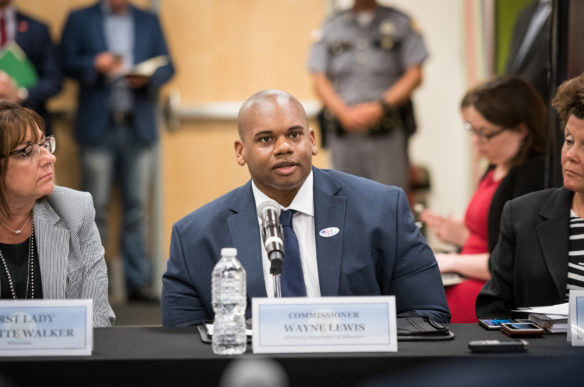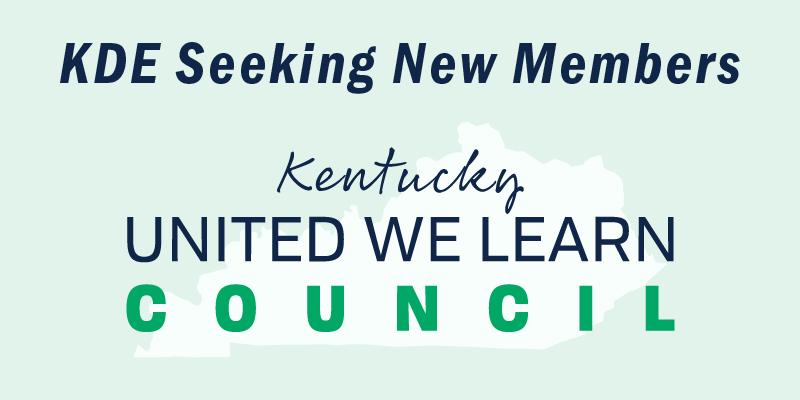
Interim Commissioner Wayne Lewis speaks at the June 26 Federal Commission on School Safety listening session at the Council of State Governments in Lexington. Lewis, along with other government officials from Kentucky, Indiana, Tennessee, Wisconsin and Ohio discussed ways to increase school safety in the wake of school shootings such as the ones in Marshall County and Parkland, Florida. Photo by Bobby Ellis, June 26, 2018
The Federal Commission on School Safety visited Lexington June 26 as part of a national listening tour on safety issues. Kentucky Department of Education Interim Commissioner Wayne D. Lewis and Kentucky Board of Education Chairman Milton Seymore participated in roundtable discussions led by U.S. Department of Education Deputy Secretary Mick Zais.
The January school shooting at Marshall County High School and other recent shootings across the country were the topic of discussion during the first roundtable discussion. Marshall County Sheriff Kevin Byars was seated next to Gov. Matt Bevin as the group discussed the events of Jan. 23, a day that Byars said “will forever live in our memories.”
Byars told the group that many lives were saved that day because members of the Marshall County community – including teachers, students and law enforcement officials – had all been trained in dealing with active shooter situations. Byars advocated that school resource officers (SROs) should be placed in all schools in the Commonwealth, with a focus on getting to know students on a personal level so that they can detect and prevent events that put lives at risk.
Lewis echoed Byars’ recommendation on SROs.
“The research is clear,” Lewis said. “There is a consensus around what we can do to keep our kids safe, and SROs are needed. We need additional adults in the building that kids have, that they can go to when they have problems. It’s really clear that for kids, having at least one adult in the building who they can talk to is central to trying to prevent these horrific events.”
The Kentucky Center for School Safety (KCSS), Lewis added, has been an asset to the Commonwealth’s school system as well. KCSS provides safe school assessments across the state to any school that requests one. According to the KCSS website, the assessment is a voluntary activity that includes an external assessment team that meets with the school principal, staff, students and parents in order to gain information about the school environment. Schools interested in learning more about the assessment can call (877) 805-4277.
“We have to do things much more systematically to ensure that regardless of where the school is, that a safety audit is done and a resource officer is in place,” Lewis said.
Seymore participated in the second roundtable discussion, saying that school counselors and SROs are critical in providing support for students in need. Kentucky Sen. Max Wise, a co-chair of the legislature’s School Safety Working Group, said out of Kentucky’s 173 school districts, only 118 have SROs.
“We have 55 school districts that do not have some sort of law enforcement presence in the school system,” Wise said. “After the 2018 legislative session we put $13 million in additional funding for [this] program. We also will allow for our Kentucky State Police to partner with the school systems for those districts where funding is lacking.”
Wise added that while there are a high number of SROs working in western Kentucky, there aren’t as many in eastern Kentucky. There is also a lack of SROs in elementary schools as compared to high schools. The key to relationship building with students, he said, actually begins in elementary school.




Leave A Comment